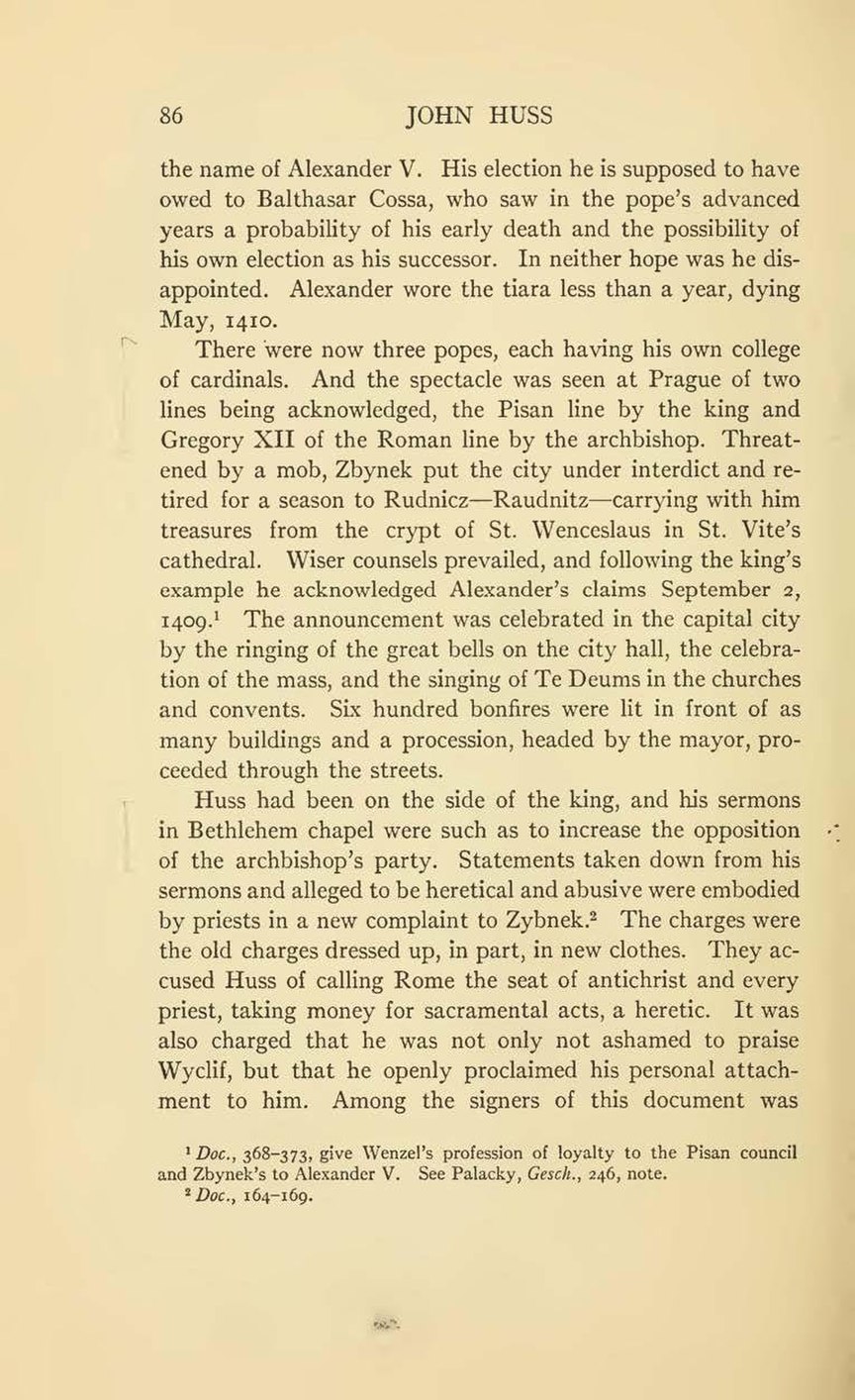the name of Alexander V. His election he is supposed to have owed to Balthasar Cossa, who saw in the pope's advanced years a probability of his early death and the possibility of his own election as his successor. In neither hope was he disappointed. Alexander wore the tiara less than a year, dying May, 1410.
There were now three popes, each having his own college of cardinals. And the spectacle was seen at Prague of two lines being acknowledged, the Pisan line by the king and Gregory XII of the Roman line by the archbishop. Threatened by a mob. Zbynek put the city under interdict and retired for a season to Rudnicz—Raudnitz—carrying with him treasures from the crypt of St. Wenceslaus in St. Vite’s cathedral. Wiser counsels prevailed, and following the king’s example he acknowledged Alexander's claims September 2, 1409.[1] The announcement was celebrated in the capital city by the ringing of the great bells on the city hall, the celebration of the mass, and the singing of Te Deums in the churches and convents. Six hundred bonfires were lit in front of as many buildings and a procession, headed by the mayor, proceeded through the streets.
Huss had been on the side of the king, and his sermons in Bethlehem chapel were such as to increase the opposition of the archbishop's party. Statements taken down from his sermons and alleged to be heretical and abusive were embodied by priests in a new complaint to Zybnek.[2] The charges were the old charges dressed up, in part, in new clothes. They accused Huss of calling Rome the seat of antichrist and every priest, taking money for sacramental acts, a heretic. It was also charged that he was not only not ashamed to praise Wyclif, but that he openly proclaimed his personal attachment to him. Among the signers of this document was
